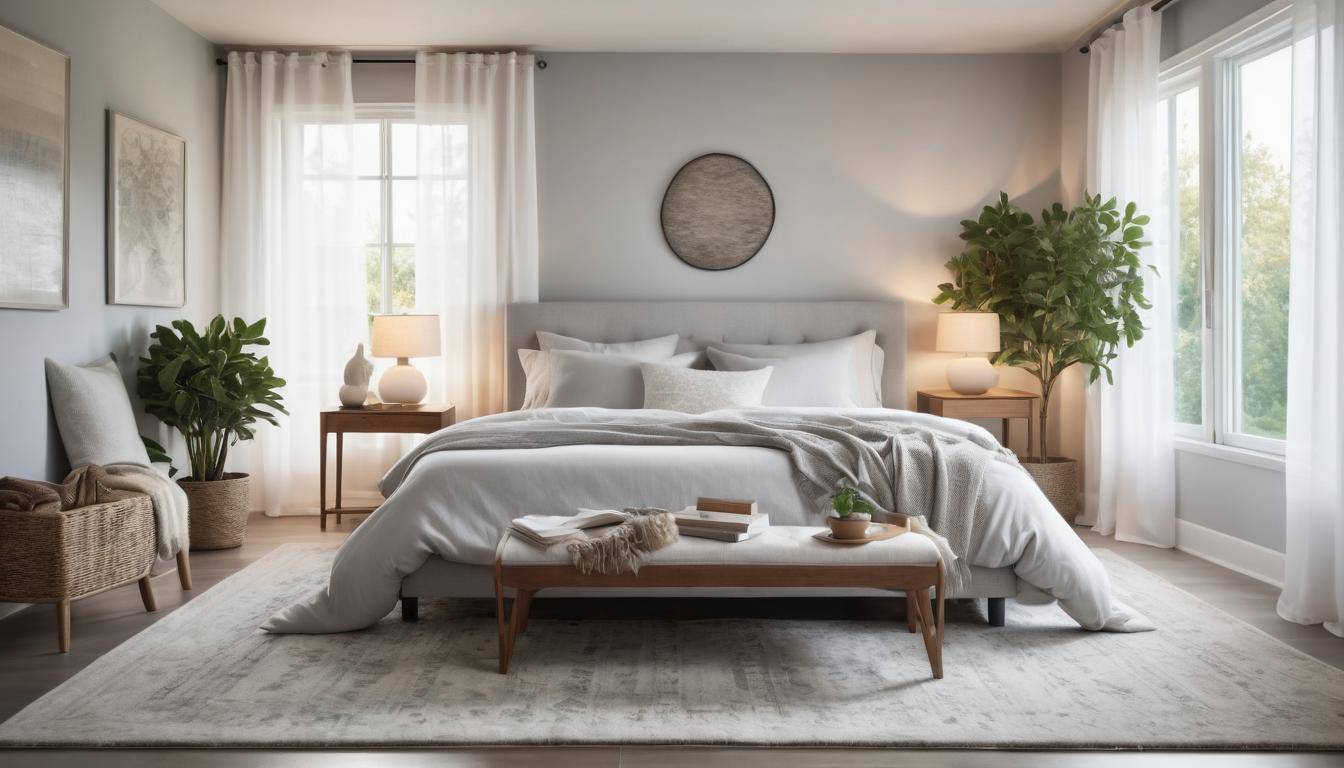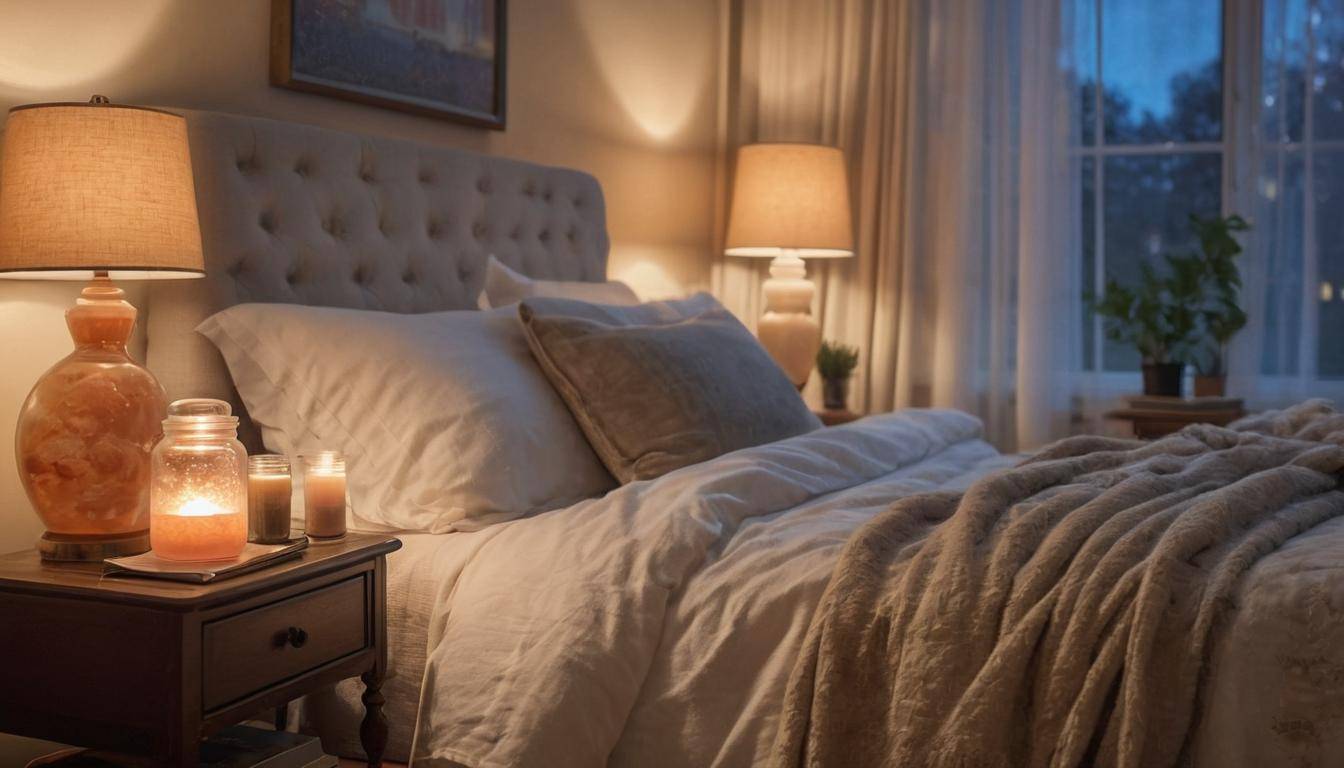Struggling to get a restful night’s sleep can feel like an endless cycle of frustration. Many of us lie awake, staring at the ceiling, or find ourselves wide-eyed long past midnight. But did you know that adopting certain habits—known as sleep hygiene—can dramatically improve your rest and overall health? According to the National Sleep Foundation, better sleep hygiene can make a significant difference in both mental and physical well-being.
To embark on this journey towards improved sleep, it’s essential to focus on specific, actionable steps. These include maintaining a consistent sleep schedule and creating a restful sleeping environment. Let’s explore these practices that could transform your nights from restless to refreshing.
Sleep hygiene refers to a set of practices and habits that promote consistent and restful sleep, including establishing a regular sleep schedule, creating a calming bedtime routine, and optimizing your sleep environment. By adopting good sleep hygiene practices, such as limiting screen time before bed and avoiding stimulants in the evening, you can significantly enhance the quality of your sleep and overall health.

Essential Sleep Hygiene Practices
The first practice to embrace is maintaining a consistent sleep schedule. This means going to bed and waking up at the same time every day, including weekends. Just as plants thrive best with a regular watering schedule, our bodies flourish on routine. When we keep a steady schedule, our internal clocks align more naturally with the rhythms of day and night, making it easier to fall asleep and wake up refreshed. Over time, you’ll notice that it becomes simpler to drift off when your body knows it’s bedtime.
Create a Restful Sleeping Environment
Next up is creating a restful sleeping environment that invites sleep rather than distracts from it. Your bedroom should be a sanctuary—a space that promotes tranquility and relaxation. Ideal conditions involve keeping the room dark, quiet, and cool, which often means using blackout curtains or an eye mask to block out any unwanted light. To further reduce noise, consider earplugs or a white noise machine; these can drown out disruptive sounds and create a cocoon of calm. A comfortable mattress and supportive pillows are non-negotiables—investing in quality sleep materials is like laying down the foundation for a peaceful night’s sleep.
Limit Exposure to Screens Before Bed
In our digital age, one of the toughest habits to break is screen time before bed. Yet, studies indicate that the blue light emitted by devices—including phones, tablets, and televisions—plays havoc with melatonin production, crucial for regulating sleep cycles. You might feel tempted to scroll through social media or binge-watch shows while lying in bed, but making the conscious choice to engage in activities like reading a book or listening to soft, ambient music instead can help signal your brain that it’s time to wind down.
Interestingly, research shows that individuals who avoid screens one hour before bedtime report significantly better sleep quality—experiencing up to a 50% reduction in nighttime disruptions.
Having established these essential practices, the next step is to refine your approach by tailoring specific elements of your nightly routine for even greater restfulness.
Crafting Your Sleep Routine
The essence of a well-crafted sleep routine is its consistency. Just as the body thrives on regular patterns, your mind benefits immensely from predictability when it comes to winding down. By adhering to specific practices at the end of each day, you signal to your body that it’s time for rest and cultivate an environment conducive to quality sleep.
Step I – Set a Wind-Down Alarm
A crucial component of your sleep routine is initiating the wind-down period with an alarm. Setting a wind-down alarm 30-60 minutes before your desired sleep time serves as a gentle reminder to start transitioning into relaxation mode. This moment is essential; consider it your cue to step away from the distractions of technology and prepare your mind and body for rest.
As your alarm goes off, treat it as a signal not just to stop using devices but to prioritize calming activities that will gently usher you towards sleep. Remember, this isn’t merely about turning off screens; it’s about creating an atmosphere that promotes tranquility.
Step II – Engage in Calming Activities
-
Taking a warm bath or shower can be a ritual in itself. The soothing water helps release muscle tension while providing a moment for mindfulness.
-
Practicing meditation or deep breathing exercises allows you to center yourself, reducing stress and anxiety with every breath. Even five minutes can shift your mental state dramatically.
-
Light stretching or yoga acknowledges and releases physical tension stored in your muscles throughout the day.
-
Sipping on a warm cup of caffeine-free herbal tea closes your day on a comforting note, further preparing your body for restful sleep.
Engaging in these calming activities establishes positive associations with bed. The aim is to turn preparing for sleep from a chore into an enjoyable part of your evening—a nurturing ritual that signals both body and mind that it’s time to slow down.
Step III – Create a To-Do List for Tomorrow
Writing down your tasks or concerns for the following day provides significant benefits. When you put pen to paper, you clear out clutter from your mind. It allows you to acknowledge what needs attention tomorrow without letting those thoughts obstruct your peaceful transition into sleep. This simple act can alleviate anxiety and foster an atmosphere where relaxation reigns supreme once you’re tucked in bed.
As you continue refining your routine, small adjustments can lead to a more effective sleep pattern—consider incorporating additional bedtime rituals that resonate uniquely with you as you prepare for a peaceful night ahead.
Relaxing Bedtime Rituals
Establishing bedtime rituals isn’t merely a luxury; it’s a pathway to creating a serene atmosphere that signals to your body that it’s time to slow down. Engaging in calming activities helps ease the mental chatter and prepares both your mind and body for rest. Each ritual, no matter how small, plays an essential role in this nightly transition.
Mindfulness Meditation
One of the most impactful rituals is mindfulness meditation. This practice encourages you to focus on your breath and observe your thoughts without judgment. By bringing awareness to the present moment, you can release the day’s stresses and start winding down for sleep. Utilizing apps like Calm or Headspace can guide you through tailored sessions designed specifically for bedtime, making it easier to cultivate this relaxing habit consistently.
Reading a Fiction Book
Another pleasant way to prepare for sleep is by reading fiction before bed. Unlike non-fiction, which often demands more focus and can stimulate your brain, immersing yourself in a fictional world provides an escape from daily stressors. A great novel allows your mind to drift away from worries, creating a gentle shift towards sleepiness. Soft lighting and a cozy blanket while enjoying those pages can further enhance this comforting ritual.
Aromatherapy and Essential Oils
Incorporating aromatherapy into your bedtime routine can also work wonders. Scents play a significant role in our emotional well-being and can deeply influence relaxation responses. Using oils such as lavender or chamomile in a diffuser not only creates a soothing atmosphere but also leverages their well-known properties that promote relaxation and alleviate anxiety. Creating this sensory calm can act as an anchor when signaling to your body that it’s time for rest.
Engaging in these relaxing rituals is crucial, but there’s more to achieving restorative sleep; adjustments to your surroundings also play a vital role.
Optimizing Your Sleep Environment

Your sleep environment can be a determining factor in achieving high-quality rest, and creating a space that nurtures tranquility is essential. It begins with temperature regulation. Keeping your bedroom cool—ideally between 60-67°F (15-19°C)—is vital. A cooler room not only helps you fall asleep faster but also reduces the chances of waking up sweaty or restless. When my partner and I set our thermostat to this range, it’s as if our bodies naturally settle into sleep mode, creating that desired cocoon of comfort.
Temperature Regulation
The right temperature is so influential that even slight alterations can disrupt your slumber. It’s fascinating how our body temperature fluctuates during different sleep stages. By maintaining that optimal range, you create an environment that supports those natural rhythms. Investing in breathable bedding or having a lightweight blanket can further enhance your sleeping conditions.
While temperature plays an important role, sound and light are equally critical in shaping your sleep experience.
Sound and Light Control
The importance of managing sound and light levels cannot be overstated for restful sleep. Utilizing blackout curtains to eliminate outside light can transform your room into a haven of darkness. This simple addition effectively reduces disturbances caused by street lights or early morning sunrises, allowing you to hold onto those precious extra minutes of sleep.
Additionally, consider earplugs or white noise machines; consistent noise levels can function like a protective shield against sudden disruptive sounds such as traffic or barking dogs. I’ve discovered that playing gentle nature sounds at a low volume creates a calming atmosphere that not only soothes my mind but significantly improves my overall sleep quality.
Color psychology also plays a pivotal role in shaping our emotions and physiological responses in any given space.
Incorporate Sleep-Friendly Colors
Think of your bedroom colors as the backdrop of a serene painting where every stroke contributes to the overall harmony of the scene. Soft hues such as pastels or muted shades tend to evoke feelings of calmness and relaxation, creating an inviting environment conducive to slumber. When I painted my walls a soft blue, it was as if my anxiety began to ebb away with each glance around the room.
Moreover, consider incorporating calming elements like plants or gentle decorative pieces that resonate with tranquility while avoiding overly stimulating designs or bold colors that could keep your mind active when it should be winding down. The ambiance should encourage relaxation rather than provoke distractions.
By addressing these aspects of your sleep environment thoughtfully, you prepare yourself to embrace better practices for achieving restorative rest, leading into effective daily habits that enhance overall sleep quality.
Daily Habits for Better Sleep

Establishing good daily practices is crucial for ensuring that we get the restful sleep we need. One of the most impactful practices is regular exercise. Engaging in at least 30 minutes of moderate aerobic activity, like walking or cycling, can enhance our sleep quality significantly. In fact, research shows that it can reduce insomnia risks by as much as 65%. However, it’s important to time your workouts wisely; vigorous exercise too close to bedtime can leave your body too energized to settle down for sleep.
Limit Caffeine and Alcohol
Another key habit involves being mindful of your intake of caffeine and alcohol. Both substances can disrupt natural sleep patterns, making it harder to fall asleep and stay asleep throughout the night. It’s advisable to limit caffeine consumption—found in coffee, tea, chocolate, and many soft drinks—at least 4 to 6 hours before bedtime.
Additionally, while alcohol may initially make you feel drowsy, it can severely impact the quality of your sleep later in the night. Choosing to abstain from these stimulants in the evening will pave the way for more restful nights.
Sunlight Exposure
Equally vital is our relationship with sunlight. Exposure to natural light plays a critical role in regulating our circadian rhythm—the internal clock that manages sleep-wake cycles. A simple yet effective recommendation is to spend at least 15 minutes each morning outside. This not only helps signal to your brain that it’s time to be awake but also boosts your mood and energy levels throughout the day.
By incorporating these habits into your daily routine, you’re setting the stage for improved rest and a healthier lifestyle overall. Exploring further, we can now look at how these practices contribute to enhanced wellness and vitality.
Benefits of Good Sleep Hygiene
The benefits of maintaining good sleep hygiene are vast and impactful. For starters, improved cognitive function is perhaps the most noticeable change people experience when they prioritize their sleep. In fact, research shows that adequate sleep can improve cognitive performance by a remarkable 20-30%. This enhancement in cognitive abilities means better memory recall, sharper attention spans, and improved decision-making skills. Imagine waking up after a full night’s rest, feeling sharp and alert—it changes how you tackle your day!
Enhanced Mood and Mental Health
Alongside cognitive improvements, quality sleep also plays a crucial role in mental health. Studies reveal a strong connection between sleep and emotional stability. Poor quality sleep can lead to mood disorders like depression and anxiety, affecting individual lives and relationships. Picture this: a restful night allows you to wake up rejuvenated, giving you the emotional resilience to navigate daily stresses with grace.
Physical Health Benefits
It’s fascinating how closely tied our physical health is to our sleeping patterns. With good sleep hygiene, you can enjoy a variety of health benefits as outlined in the table below:
| Benefit | Explanation |
|---|---|
| Stronger Immune System | Quality sleep enhances your body’s ability to fight infections, making you less susceptible to colds and flu. |
| Reduced Risk of Chronic Diseases | Prioritizing restful sleep lowers risks of heart disease, diabetes, and stroke significantly over time. |
| Better Weight Management | Adequate sleep regulates hormones like ghrelin and leptin that control hunger, aiding better weight management. |
This highlights not just the importance of getting enough shut-eye but also how vital good sleep hygiene practices are for overall health. Adequate rest isn’t merely about feeling rested; it’s foundational for a healthier life.
These multi-faceted benefits emphasize that improving sleep hygiene practices is a crucial step toward better overall health. For more detailed guidance and resources, visit Archie Foundation Home.
Incorporating these practices into your routine can pave the way for a healthier mind and body. Take charge of your sleep hygiene today for a brighter tomorrow.
